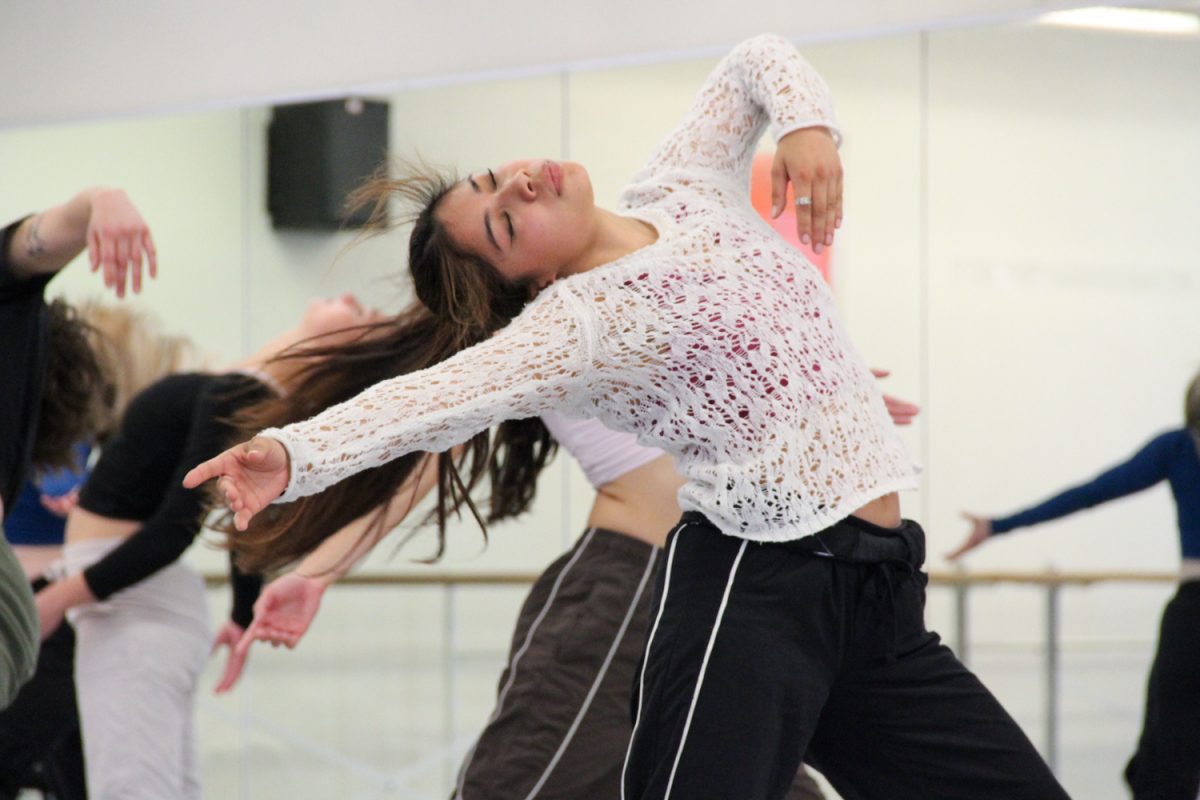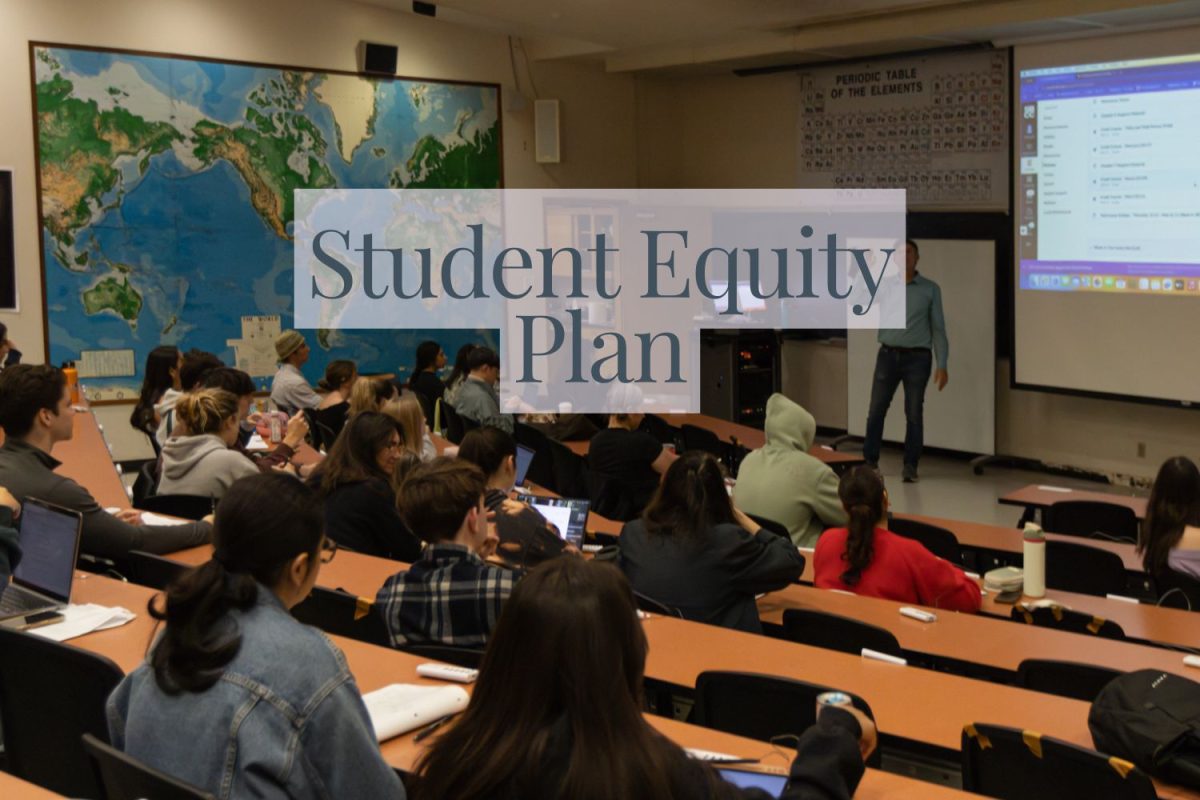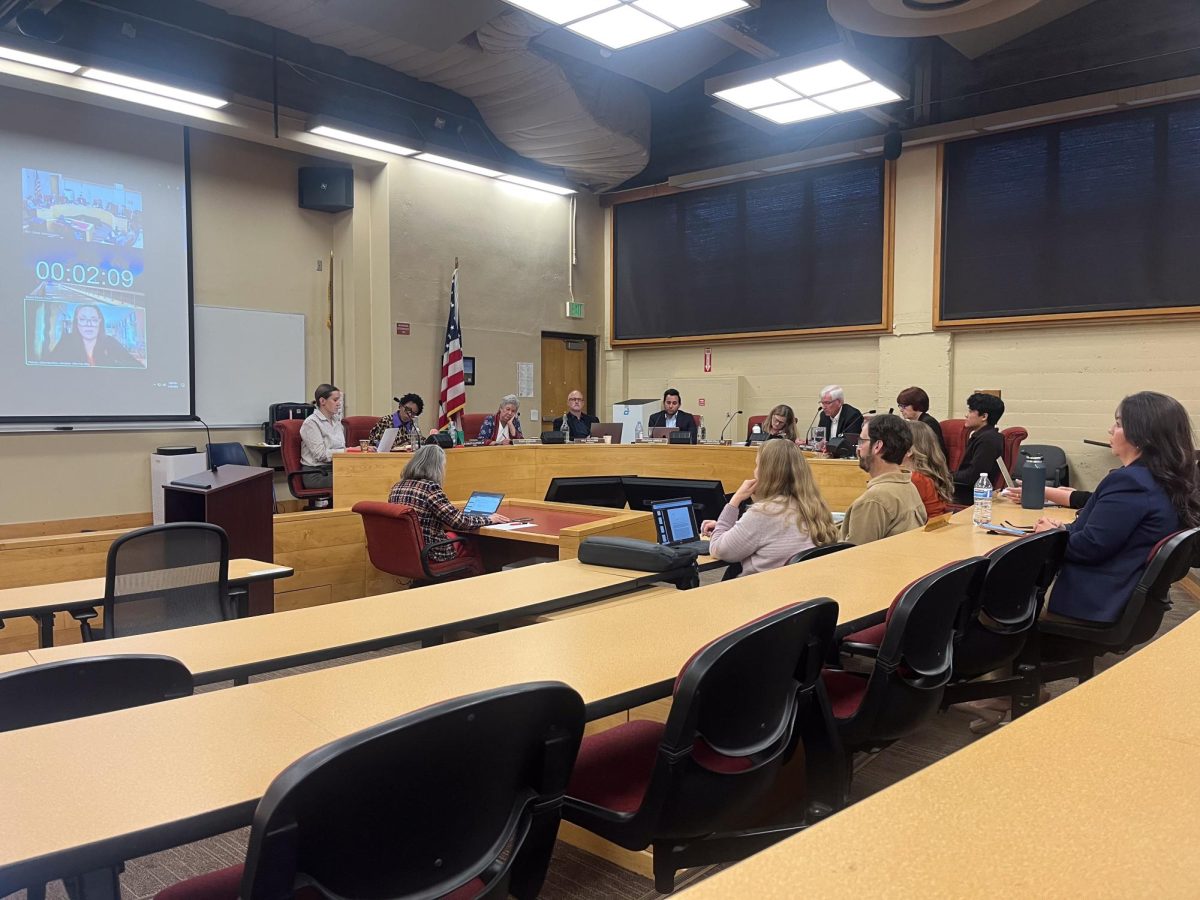The Academic Senate discussed the impacts of having students do faculty evaluations online rather than on paper at its final Thursday meeting.
Dr. Z Reisz, an analyst for the Office of Institutional Assessment, Research and Planning, announced that the office will not be able to process paper versions of these evaluations starting next fall. Reisz said the office is losing two out of their five staff members so this work load would no longer be realistic.
Some faculty were concerned that there would be a decrease in response rates if they switch to online forms.
“Although we’re not going to be able to support the logistics of going through the paper surveys, [Institutional Research] is very much here to support evaluating [the rates] and making sure that we do get [them] as high as possible,” Reisz said.
The office may use the survey software Class Climate to send students links through Canvas and Pipeline emails in replace of the paper forms. The links would only be available at the time when a regular paper survey would be conducted.
This poses a problem to the sections that do not have access to the Internet.
Senator Kathleen O’Connor, representing the Physical Education, Health, Dance, and Athletics division, brought up that classes like kayaking and surfing would have a hard time accessing any of the online surveys.
However, faculty will still be able to conduct paper surveys, but will need to scan them over to the office themselves. This option would help avoid the problem of absent students not being able to take it.

Paul Jarrell, executive vice president of educational services.
Dr. Paul Jarrell, executive vice president of educational programs, said that student comments are a vital part of the evaluation process and that he wants the surveys to be accessible for those classes too.
“We’re committed to making it work,” Jarrell said. “I know it’s not a one size fits all. I also know that we can’t keep doing it the way we’re doing it.”
“We’re committed to finding something that works for all of us so we can get that information,” he said.
Dolores Howard, a senator for the School of Modern Languages and English as a Second Language division, agreed with Jarrell and emphasized the importance of the students’ ability to take the surveys.
“For anybody, the evaluation process is so important to who we hire for the following semester and what training and mentoring we give to adjunct faculty,” Howard said. “It’s not something we would want to play around without really thinking it through and getting something in place that would make it accessible to students.”
The Academic Senate will reconvene on July 12 for their first meeting of the Summer Session.










